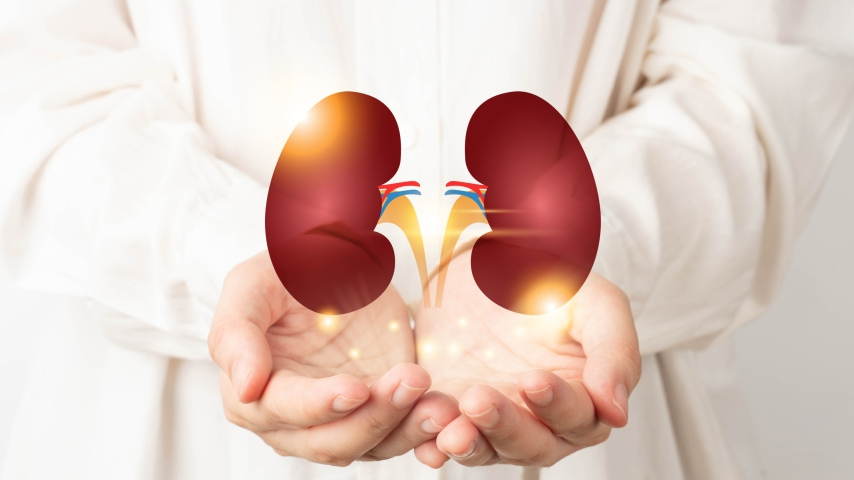Navigating Kidney Failure: A Comprehensive Guide

Introduction:
Kidney failure, also referred to as renal failure, is a formidable medical condition characterized by the gradual decline in kidney function over time. This impairment in renal function can result in the accumulation of waste products and toxins in the body, along with disruptions in fluid and electrolyte balance. Understanding the causes, symptoms, diagnosis, treatment options, and management strategies for kidney failure is paramount for patients and their families as they confront this challenging health condition.
Signs and Symptoms of Kidney Failure:
Identifying the signs and symptoms of kidney failure is vital for early detection and timely intervention. Although symptoms may vary based on the underlying cause and severity of kidney dysfunction, common indicators of kidney failure include:
- Decreased Urine Output: A reduction in urine production or oliguria (urinating less than usual) may ensue as the kidneys lose their ability to filter waste products and regulate fluid balance.
- Swelling (Edema): Edema, characterized by swelling in the legs, ankles, and feet, may occur due to fluid retention stemming from impaired kidney function.
- Fatigue and Weakness: Kidney failure can lead to anemia, resulting in fatigue, weakness, and diminished energy levels.
- Shortness of Breath: The accumulation of fluid in the lungs, known as pulmonary edema, can cause breathing difficulties or shortness of breath, particularly when lying down.
- Nausea and Vomiting: Nausea, vomiting, loss of appetite, and gastrointestinal disturbances may arise due to the buildup of toxins and waste products in the body.
Diagnosis and Evaluation:
Diagnosing kidney failure entails a comprehensive approach involving medical history assessment, physical examination, laboratory tests, and imaging studies. Timely detection and accurate diagnosis are pivotal for initiating appropriate treatment and averting complications associated with renal dysfunction.
- Medical History and Physical Examination: Healthcare providers evaluate the patient's medical history, symptoms, and risk factors for kidney disease. A thorough physical examination may reveal signs suggestive of kidney dysfunction, such as edema, hypertension, or abnormal fluid balance.
- Blood Tests: Serum creatinine, blood urea nitrogen (BUN), electrolyte levels, and glomerular filtration rate (GFR) are measured to assess kidney function and detect signs of renal impairment.
- Urinalysis: Urine tests help evaluate the presence of protein, blood, or other abnormalities, indicative of kidney damage or dysfunction.
- Imaging Studies: Imaging tests such as ultrasound, CT scan, or MRI are employed to visualize the kidneys and identify structural abnormalities like kidney stones or cysts.
Treatment Options for Kidney Failure:
Treatment approaches for kidney failure hinge on the underlying cause, stage of kidney disease, and overall health status of the patient. Primary objectives of treatment encompass symptom management, slowing the progression of renal dysfunction, and preventing complications associated with renal failure.
- Medication Management: Medications may be prescribed to alleviate symptoms and manage complications of kidney failure, such as hypertension, anemia, electrolyte imbalances, and bone mineral disorders.
- Dialysis: Dialysis serves as a medical intervention to artificially remove waste products and excess fluid from the blood when the kidneys are incapable of performing this function adequately. Hemodialysis and peritoneal dialysis are two main types of dialysis.
- Kidney Transplantation: Kidney transplantation stands as the preferred treatment option for numerous patients with end-stage renal disease (ESRD). It involves surgically replacing a diseased or failed kidney with a healthy kidney from a living or deceased donor.
- Lifestyle Modifications: Lifestyle changes, including dietary adjustments (such as limiting salt, protein, and potassium intake), smoking cessation, regular exercise, and weight management, can help decelerate the progression of kidney disease and enhance overall health outcomes.
Dr Rajiv, Consultant Nephrologist, emphasizes, "Early recognition and appropriate management of kidney failure are essential to improve patient outcomes and quality of life. By understanding the signs and symptoms of kidney failure and seeking timely medical evaluation, patients can receive the necessary care and support to manage their condition effectively."
Conclusion:
Kidney failure is a multifaceted condition necessitating comprehensive evaluation, treatment, and management. By identifying the signs and symptoms of kidney failure, undergoing appropriate diagnostic testing, and exploring available treatment modalities, patients can proactively address their condition and optimize long-term health outcomes. Collaboration between patients, healthcare providers, and multidisciplinary care teams is indispensable in delivering personalized, effective care for individuals with kidney failure. With advancements in medical technology and treatment modalities, there is optimism for improved outcomes and enhanced quality of life for patients grappling with kidney disease.
Specialities
Clear allMeet the doctor

Dr Rajiv E N
Kidney Transplant
MBBS, MD (Gen Medicine), DM (Nephrology)











